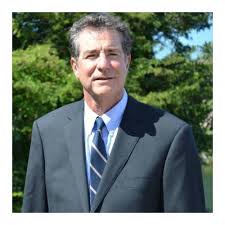Birth Control Pills, BCP's, are very effective at preventing pregnancy by suppressing ovulation. However, BCP's contain synthetic hormones which have adverse side effects.(29)(30)(31) To avoid these monster hormones, the IUD (intra-uterine device) is available.
Here is a listing of people involved in the early development of birth control pills: Russell Marker, Percy Lavon Julian, Carl Djerassi, Luis E. Miramontes, George Rosenkranz, Gregory Pincus, Min Chueh Chang, John Rock.(32)
In the future of medicine, I predict that progesterone will replace progestins as oral contraception . The bio-identical hormone, Progesterone, will be used in the birth control pills of the future. Early research on contraception was done with progestereone, and research was switched to synthetic progestins to obtain a patent and make a profit. Another consideration was ease of use of the oral tablet, at the time available only as a progestin. Bio-Identical progesterone suppresses ovulation and was the original agent investigated in early research for a contraceptive agent. However, timing and dosages were never officially worked out, so we currently are left with the synthetic birth control pills by default. Again, the IUD can be used instead to avoid the monster hormones. I predict that new research outside the US in the next decade will establish progesterone as the hormone of choice for birth control. Most likely, funding for this research will come from a foreign government agency, in a country with universal health care which has economic incentives to make a healthier pill.
If high estrogen levels were the primary cause of breast cancer, we would expect to find more breast cancer mortality in women with higher hormone levels at age 30, and less breast cancer in women with low hormone levels at age 60 (post-menopausal). However, what we find is the exact opposite. According to the CDC, mortality from breast cancer is 7 times higher in the older women aged 60 (0.7 per cent), compared to younger women aged 30 (0.1 per cent). Mortality from breast cancer is 700 % higher in post-menopausal women with low hormone levels.(link)
Conclusion
In conclusion, bio-identical hormones used at appropriate dosages are safe, effective, and beneficial for health. On the other hand, any chemical alteration of a human hormone creates a monster hormone, which is not bioidentical. These monster hormones should never have been approved for marketing and sale to the American people. These monster hormones are unsafe, causing cancer and heart disease, and should be banned immediately.
Read more on this topic, see Related Content:
The Importance of BioIdentical Hormones by Jeffrey Dach MD
The Safety Of Bio-Identical Hormones by Jeffrey Dach MD
The Battle for BioIdentical Hormones by Jeffrey Dach MD
BioIdentical Hormones, Cook Book or Tailor Made? by Jeffrey Dach MD
Breast Cancer Prevention and Iodine Supplementation by Jeffrey Dach MD
Other Excellent Articles on the Safety of BioIdentical Hormones
(1)The Bioidentical Hormone Debate: Are Bioidentical Hormones (Estradiol, Estriol, and Progesterone) Safer or More Efficacious than Commonly Used Synthetic Versions in Hormone Replacement Therapy? Postgraduate Medicine, Volume 121, Issue 1, January 2009, by Ken Holtorf MD
(2) http://www.holtorfmed.com/nss-folder/printable_pdf/cfs/Holtorf_K._Med%20Clinics_N._America.pdf
Hormones inWellness and Disease Prevention: Common Practices, Current State of the
Evidence, and Questions for the Future Erika T. Schwartz, MD, Kent Holtorf, MD. Prim Care Clin Office Pract 35 (2008) 669–705.
(3) The Case for Bioidentical Hormones Steven F Hotze MD. 2008.(33)
Next Page 1 | 2 | 3 | 4 | 5 | 6 | 7 | 8
(Note: You can view every article as one long page if you sign up as an Advocate Member, or higher).





